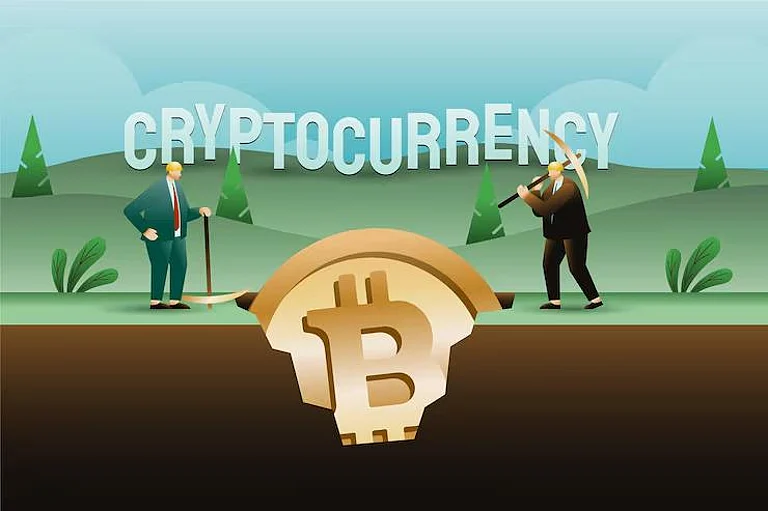In recent years, cryptocurrencies have moved from a niche to a mainstream asset class of financial products. Bitcoin, Ethereum, and dozens of other digital tokens are now purchased, sold, discussed, and invested in by tens of millions of individuals around the globe. But while the explosive growth of the crypto industry has brought new opportunities, it has also opened the gates to a parallel proliferation of cryptocurrency scams. The same characteristics making crypto revolutionary—decentralization, anonymity, and accessibility worldwide—are being exploited by criminal elements to deceive, cheat, and manipulate innocent consumers.
Should you be exploring the crypto universe, whether as a novice or even a veteran investor, to be aware of how these cons operate and how to protect yourself is not only beneficial—nay, it's a necessity. This article aims to inform you about the most common and emerging cryptocurrency cons, why they are effective, and practical advice on how to stay safe in the digital financial landscape.
The Anatomy of a Cryptocurrency Scam
Manipulation—emotional, psychological, and informational—is at the core of all scams in cryptocurrency. They are schemed to mimic real opportunities. They will present themselves as investment opportunities, new coin offerings, influencer-backed projects, high-yielding trading platforms, or even charity. Their goal is to build trust for an adequate period to make the victim move funds or hand over sensitive access credentials like private keys or recovery phrases.
Scams typically employ professionally crafted websites, pseudonyms, and copied designs of popular platforms to be authentic. A scammer typically offers the victim insider knowledge, advance access to investments, or guaranteed gains that convince the victim to take action on a whim before the "limited-offer" is over. This sense of urgency is a psychological tactic embraced to bypass rational thinking and create impulsive decisions.
Another aspect of cryptocurrency fraud is the technical complexity that lies behind the ecosystem. One does not completely grasp how blockchain or wallet’s function, and thus susceptible to scams due to ignorance. You can be tricked into claiming that you need to "validate your wallet" or "unlock an airdrop" by sharing your private key, which in fact provides them with complete access to funds.
These are not relegated to obscure sites or dark web threads. They thrive on mainstream outlets—social media, messaging apps, YouTube, and even email. Scammers copy what works and evolve their tactics to catch the maximum number of potential victims.
How Cryptocurrency Scams Are Evolving
The evolution of crypto scams is in tandem with the evolution of the industry. During the initial days of Bitcoin, there were basic scams, which mostly appeared in the form of phishing mail or imposter wallet applications. Today, crypto scams are sophisticated, cross-border scams that are run by seasoned cybercriminals. From social media impersonation scams to romance frauds, to fake exchanges and DeFi scams, the scammers never stop evolving with emerging trends and innovations.
The greatest threat among them is the rising prevalence of "rug pulls" on decentralized finance (DeFi) and NFT markets. Here, a developer creates a fake project, raises funds from investors, and then disappears, leaving behind worthless tokens. The scams can make millions of dollars before something goes wrong in the eyes of the community.
Social engineering scams are becoming increasingly sophisticated too. They are using the power of artificial intelligence now to impersonate people's voices and faces, construct fake reviews, or even deepfake videos to promote bogus crypto projects. All this sophistication can mislead even seasoned investors, especially when combined with sounding-plausible information, graphs, or false endorsements.
Phishing attacks have also risen through the use of malicious browser extensions and forged customer support interactions. These methods exploit the concept of users trusting and being oblivious, in which an interaction is made to appear as resolving an issue but instead to take control over wallets or accounts.
With more individuals utilizing cryptocurrency, scammers have begun to approach new groups of victims, including retirees, students, and small business owners, all of whom may be an easier target for advanced trickery and technical jargon.
The Price Tag of Being Duped by a Crypto Scam
The financial damage of cryptocurrency scams is often devastating. Individuals have lost life savings, retirement funds, and years of investments in a matter of moments by transferring crypto to a scammer's wallet. Since crypto transactions are irreversible and not overseen by traditional finance organizations, there is often no recourse in the law or refund mechanism. Once the transaction is recorded on the blockchain, it's gone for good.
But the harm is not only monetary. Victims in many cases go through emotional distress, such as feelings of shame, embarrassment, and mental health issues after having been scammed. There is usually social shame attached to falling prey to such scams that discourages victims from coming forward or reporting the crime.
In the business context, the effect can be more severe. Companies that are victimized by frauds experience damage to reputation, loss of customer trust, and potential penalty by regulators if they were not following security best practice. To new startups and crypto ventures, a connection to fraud—either direct or indirect—can stop rounds of funding and destroy credibility in the market.
In addition, victims of scams often become victims of secondary fraud as well. As soon as someone has been identified as a victim of a scam, their information may be shared or even traded on the dark web and they are put at risk for further abuse in the guise of "recovery services" or legal counsel.
What You Can Do to Protect Yourself
In a landscape as high-speed and unchecked as crypto, prevention is your best defense. Not being victimized by scams doesn't require advanced technical knowledge—but it does require constant awareness, skepticism, and the self-regulation to do your due diligence prior to taking action.
Start by verifying every project, platform, and individual you communicate with. Double-verify URLs, official social media pages, and domain names to avoid lookalike websites or impersonation pages. Avoid clicking links that are sent by unknown senders, particularly those promising "free crypto," "airdrops," or "doubling investments.".
Understand the basics of wallet security. Never share your private key or your recovery phrase with anyone—there is never ever any genuine platform that will ask for them. Keep long-term holdings in cold storage wallets and ensure you turn on two-factor authentication for every account. While choosing wallets and exchanges, opt for those with good credentials, openness, and security certifications.
Keep yourself informed about the newest scam warnings through trustworthy sources like cryptocurrency news portals, legitimate blockchain community forums, and cybersecurity organizations. Joining online communities like Reddit or Twitter can also assist you, but always be wary of the guidance provided by strangers or anonymous accounts.
If it smells like it might be a scam, slow down. Scammers are counting on impulse, pressure, and disorientation. Learn about the psychology of scams—it serves to develop the reflex to think twice before acting.
Final Thoughts
The decentralized power of cryptocurrency comes with vast power—and with that, vast responsibility. In a world without gatekeepers, each participant must be its own front line of defense. Cryptocurrency scams will only become smarter and smarter. But through education, awareness, and careful digital practice, users can go a long way towards reducing their exposure to them.
Trust must be earned, not assumed—especially in the ether of cyberspace where names are fictitious and deals can't be returned. Before you send money, swap credentials, or take someone's word on money matters, quiz yourself on the question most important: Is this real, or is somebody trying to pull the wool over my eyes?
Cryptocurrency is not risky in itself—least of all, pretending the risks don't exist. By educating yourself and staying alert, you can enjoy the crypto revolution in its entirety and avoid falling victim to its negative underbelly.

























